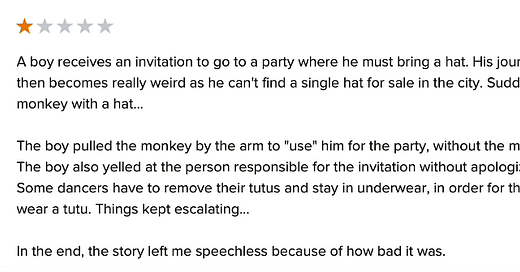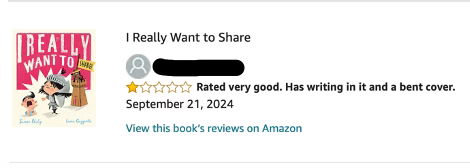Happy Friday, folks!
Today’s question is an imposter: I have no idea why it’s on my list of FAQs. I very rarely have to answer this question.
I can only assume that I meant to add it to a list of IAQs – Infrequently Asked Questions – but made a mistake, because I was drunk, or off my face on breadsticks. Yep. That’s probably it.
Still, I quite like the idea of an IAQs series. It could be fun to answer the weirdest questions I’ve ever been asked – or to simply make some up…
If you had to spend 17 weeks in a humid lift with one of your illustrators, which would you choose?
Not counting those in Nicoise salads, how many boiled eggs have you eaten across your lifetime?
How do you cope with being so rubbery?
It’s food for thought, certainly. Feel free to send in your weird questions. If I get enough for a series, I’ll do one.
And on the topic of weird questions, I was once asked at a school visit, ‘Are you lactose intolerant?’, which I thought a pretty random inquiry from a child.
There was also the time I got asked – having spent an hour in the class – ‘What’s your name and why are you here?’
After a couple of years, I still can’t work out whether the child who asked this question was a comedic genius who’d already perfected his deadpan delivery and timing, or pure evil. Unsurprisingly, I left that particular school feeling a little bit flat.
Anyway, despite rarely being asked it, I’m still going to answer today’s question: How do you handle criticism?
In my experience, feedback tends to be delivered very sensitively in the world of kids’ books – at least by those working in it – probably because everyone is so nice. Genuinely, they are! I’m yet to meet anyone working in children’s publishing that I actively dislike, though there’s still time, of course…
As such, feedback from editors/other authors and illustrators/my agent never really feels like criticism.
If Sallyanne thinks a text of mine is awful, she’ll say something along the lines of ‘For me, this isn’t quite working’ – which I’ve learned by know is code for ‘my goodness, this is shit’, but I appreciate the sensitivity nonetheless (thanks, Sallyanne).
If Sallyanne thinks a text of mine is bad, she’ll say something along the lines of ‘For me, this isn’t quite working yet’ – and I’ll weigh up whether or not it’s worth trying to rescue.
And if Sallyanne thinks a text of mine is promising, she’ll normally say something along the lines of ‘This is great. I love ‘X’ and ‘Y’, but I think ‘Z’ could do with a bit of work’ – and so I’ll do the bit of work that’s required on ‘Z’.
Publishers, meanwhile, generally assume – in my experience – that us authors are terribly fragile, with delicate egos (and they’re right), and thus go to great lengths (and word counts) to protect us from anything resembling criticism. Which is kind. But it does occasionally lead to the following style of feedback:
‘Dear [agent name],
Thanks for your patience over the last seven-and-a-half years whilst we considered your submission.
Everyone in the team absolutely ADORED this text. It caused several of us to jump up and down with delight, and our art director actually burst into flames of joy. We particularly liked the words. The sentences are INCREDIBLE too.
[Author name] is SUCH a talented writer, aren’t they? They have a dexterity with language, and the way they use full stops at the end of sentences is pure GENIUS. Genuinely, we’ve never seen anything like it. It was a treat to read this unique piece of writing.
That being said, this particular text isn’t for us.
We’d love to see more from [author name] in the future, though. We’re huge fans of their work.’
These rejections can feel a little confusing, not to mention frustrating. I’d much prefer a direct approach, without the flattery – ‘Thanks for sending, but this text isn’t one for us’ – which is much easier to move on from.
Thankfully, most publishers tend to be far more constructive with their feedback, which is often very helpful when re-working a text.
Some members of the general public, however, are more than willing to provide some bona fide criticism. Never have I received this in person when I’m out and about in public, minding my own business: no one has ever spotted and then targeted me with abuse about my books (though if that does ever occur, I’ll know that I’ve finally made it).
But they really don’t hold back when offering their thoughts online, as some of my rotten reviews show.
So, how do I handle this sort of criticism?
Well, mainly by trying to laugh it off, but also…
… by sharing it with you, obviously! Here are some of my favourites, starting with this admirably sassy effort:
That last sentence was a very nice touch, I thought.
Brevity is the soul of wit (as Shakespeare wrote), so kudos to the author of this review:
which clearly proved a conversation starter…
What I appreciate about this next review is that it clarifies EXACTLY why my book left the reviewer speechless (as well as raising the important issue of consent in human-simian relationships):
I’ll admit that I found the following review a difficult read. It’s fair enough to slate a book for having a bent cover, but to criticise it for containing writing is a cheap shot, as far as I’m concerned. It’s a book! What were they expecting to be inside it?!
I do try to take feedback on board, though – so moving forward, I’ll be doing my best to write books that don’t contain writing.
The harshest, most direct critics of all though are, of course, children. Kids are sure to let you know if you or your book is boring them.
Their methods vary, but perhaps the most effective is the deliberate, overly-dramatic, exceedingly loud yawn, unleashed in the middle of your story without mercy, but with very direct eye-contact.
Other techniques include:
talking over you, or to each other
very loudly announcing ‘I’M BORED!’
turning to face away from you
simply standing up and leaving. (I remember vividly the time my youngest cousin stood up half-way through the film we were watching, announced ‘HAD ENOUGH!’ to everybody, and walked out of the cinema.)
These serve as brutal but effective reminders of the importance of writing for and to your audience when sitting down to begin a new manuscript.
In fairness to children, you can also count on them to deliver some of the most direct (and morale-boosting) praise – if they loved your book, they’ll come straight up to tell you with great enthusiasm and detail.
All-in-all then, criticism’s fairly straightforward to handle, I find: either it’s useful, and feeds into future writing, or it’s so ridiculous that laughing it off is easy. And if it’s bang-on, then I was likely already aware of the issues, and expected it.
Perhaps ‘How do you handle rejection?’ would have been a better question to answer, as I find that it’s rejection, not criticism, that I constantly have to contend with (as demonstrated in my Submissions on Show series).
I’m not gonna lie: constant rejection is tough. It can make it difficult to motivate yourself. It can make writing new texts feel futile. It can get the better of you, and squash you down, and make you wonder why you started writing in the first place.
But it also comes with the job, and I knew that from the start. It also helps you become resilient, and thick-skinned, and determined, and grateful for successes – big and small – when they eventually happen.
I deal with rejections by sulking when I need to sulk, by venting when I need to vent, by trying to laugh off the confusing and nonsensical ones, and trying to remain hopeful.
But mainly, I do what all the advice suggests: crack on with writing something else. Easier said than done sometimes, but it’s the best course of action.
And the one thing I try to remember when dealing with both criticism and rejection is that opinions on writing are exactly that: opinions – which, by nature, are always subjective.
This has been proven to me time and time again over the course of my writing career: for every offer I’ve received there have been multiple rejections, and for every editor who hasn’t liked a text, there’s been another who has (even if, ultimately, they weren’t able to acquire it).
And that’s a consoling thought, a reason to be hopeful.
Sometimes, all you need is one person or publisher to back you.










Hilarious! I love the lactose inquiry. 🤣
Thanks for sharing, this will be very helpful for when my book comes out (in two years)! I think the reviewer that complained about writing meant that the book had someone's handwriting inside. But that should be on the person who sold it to them, not on you!